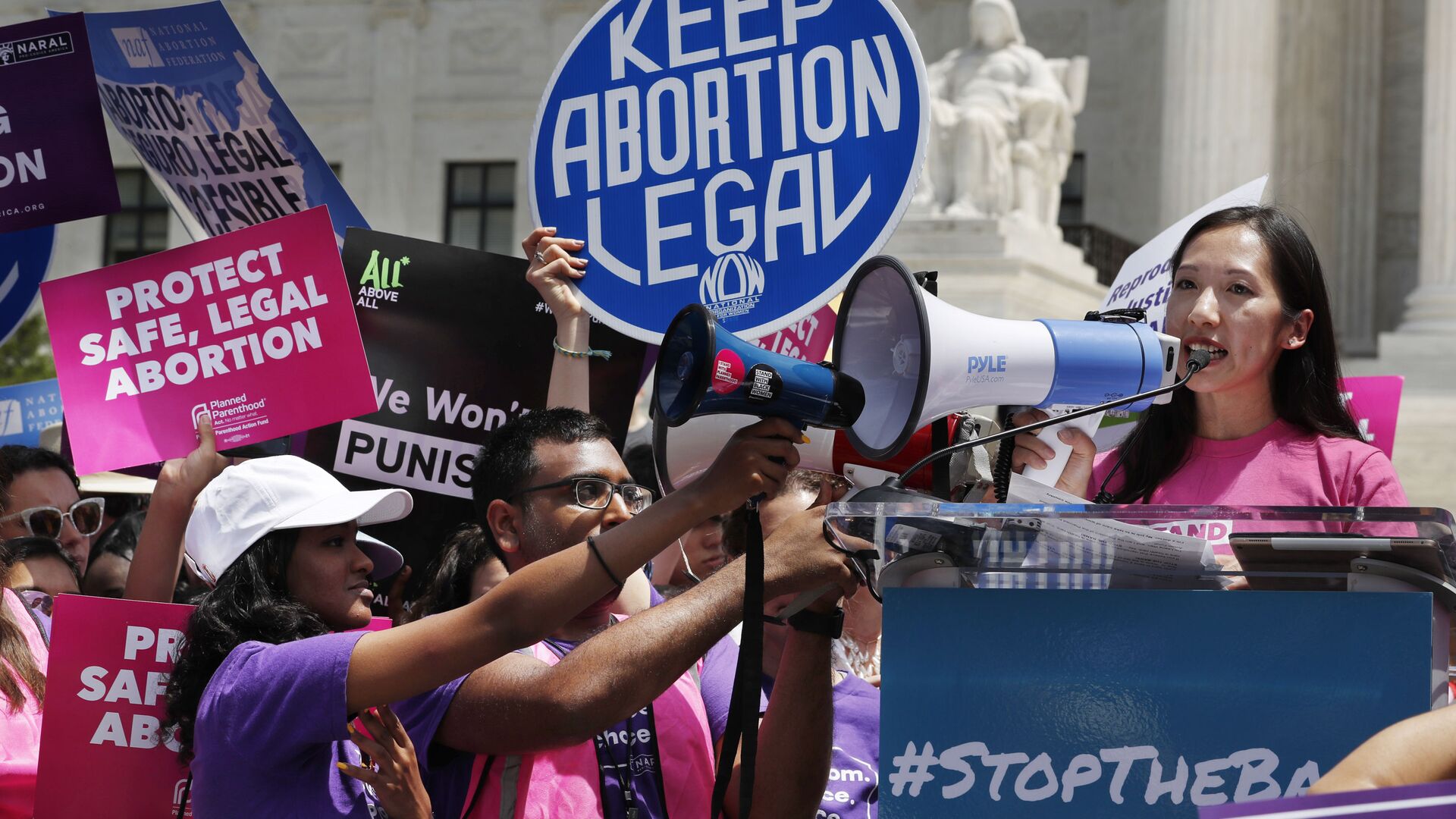US Supreme Court Allows Texas Anti-Abortion Law to Stand, Sparking Fears Roe Decision in Peril
00:43 GMT 03.09.2021 (Updated: 00:44 GMT 03.09.2021)

© AP Photo / Jacquelyn Martin
Subscribe
After the US Supreme Court declined to block a controversial anti-abortion law in Texas on Wednesday, reproductive health advocates are fearful that the legal right to an abortion will itself be under threat when the court hears another similar case later this year.
In a late-night ruling made using the shadow docket, the nation’s top court declined to block the law from taking effect until its legality is battled out in court. The 5-4 ruling saw Chief Justice John Roberts, who typically joins his conservative colleagues, instead side with the three liberal justices in a dissent in which he noted that the law’s “not only unusual, but unprecedented” enforcement plan demanded more exacting scrutiny before being allowed to take effect.
Signed into law in May by Texas Governor Greg Abbott but tangled up in legal fights since then, the so-called “heartbeat” law bans pregnant people from getting abortions if a series of electrical impulses where the fetus’ heart would form is detectable, which can occur as little as five weeks after pregnancy - before many would know they were even pregnant. However, the law is enforced by third-party lawsuits, allowing anyone to sue anyone who “aids and abets” such an abortion, even if the plaintiff is totally unconnected to the person getting the abortion. The only exception is that the father of the child cannot be the plaintiff.
To aid enforcement of the bill, anti-abortion groups began establishing websites at which “whistleblowers” could submit anonymous tips about people they suspected of getting an abortion or helping someone to get one. However, activists on Tiktok and other social media sites have organized mass spamming of the sites to clog up their system.
According to the emergency application for an injunction by a group of abortion providers and women’s health advocates, the law would ban 85% of all abortions.
The law is not the first to ban abortions at such an incredibly early time, but it’s the first to employ such a novel method of enforcement, which defies normal methods of appeal.
“The Court’s order is stunning,” Associate Justice Sonia Sotomayor wrote in her dissent. “Presented with an application to enjoin a flagrantly unconstitutional law engineered to prohibit women from exercising their constitutional rights and evade judicial scrutiny, a majority of Justices have opted to bury their heads in the sand.”
“We are devastated that the Supreme Court has refused to block a law that blatantly violates Roe v. Wade,” Nancy Northup, president and chief executive of the Center for Reproductive Rights (CRR), one of the groups that brought the case to the Supreme Court, said in a Thursday statement. The 1973 Roe decision made abortion a legal right across the United States, creating a structure ostensibly preventing abortion from being regulated to such an extent as to create an undue burden.
“Right now, people seeking abortion across Texas are panicking. They have no idea where or when they will be able to get an abortion, if ever. Texas politicians have succeeded for the moment in making a mockery of the rule of law,” she added.
Women’s health advocates also fear the court decision sets the tone for another upcoming case brought by Mississippi to be heard by the court later this year, Jackson Women’s Health Organization v. Dobbs, in which the Magnolia State explicitly asks for Roe v. Wade to be overturned.
In the wake of the decision, House Speaker Nancy Pelosi (D-CA) pledged that when lawmakers return from their summer recess on September 20, “the House will bring up Congresswoman Judy Chu’s Women’s Health Protection Act to enshrine into law reproductive health care for all women across America.”
Ana Santoyo, a writer at Breaking the Chains magazine, told Radio Sputnik’s By Any Means Necessary on Thursday that the law won’t and can’t ban abortions - it will just ban safe abortions.
“This would make it impossible for people to access abortion in Texas and will inevitably force people to travel great distances to receive the necessary care or access less safe underground services. So, abortions will happen regardless of this law,” Santoyo told hosts Sean Blackmon and Jacquie Luqman. “What they are doing is actually taking away the legality and safety of it, which will kill women and all those seeking abortion care.”
“It points to the chipping away of women’s rights or anyone seeking an abortion and other reproductive justice that people are organizing and fighting for,” she said, noting that the court is capable of acting quickly when it wants to, such as when it recently struck down the federal eviction moratorium in a similar overnight shadow docket ruling. “That points to [the fact that] we really need a new system that is in the interests of the working class and poor people that are fighting back for their rights.”

